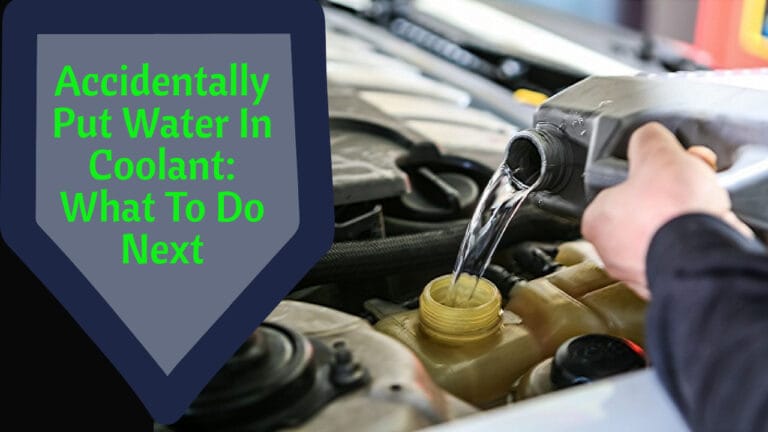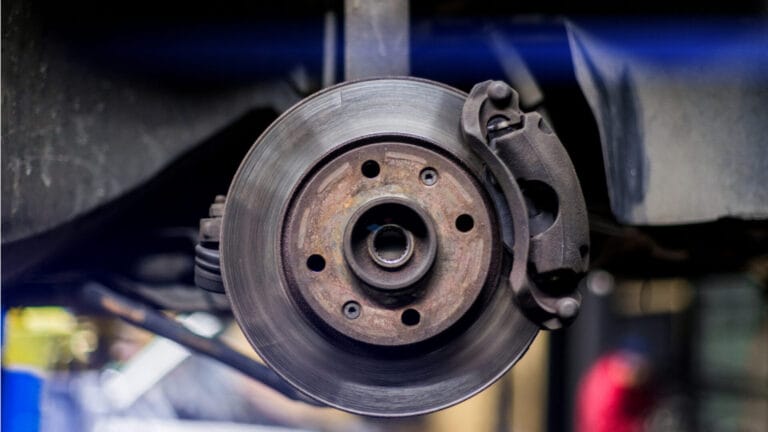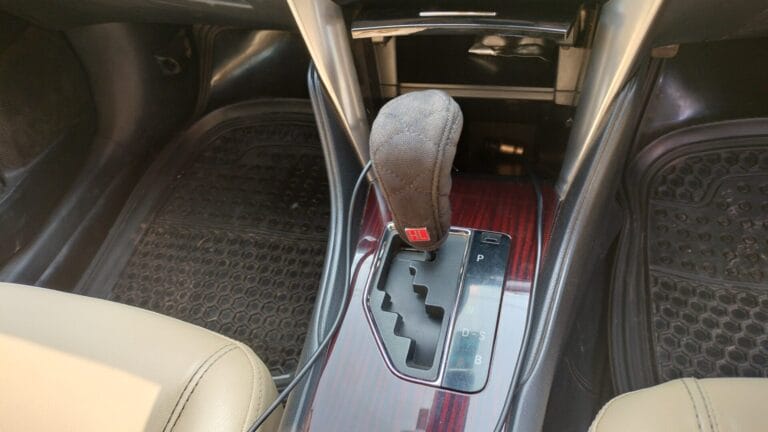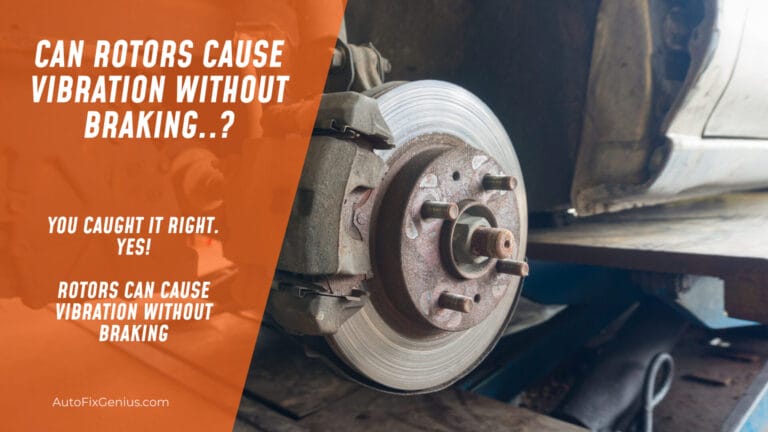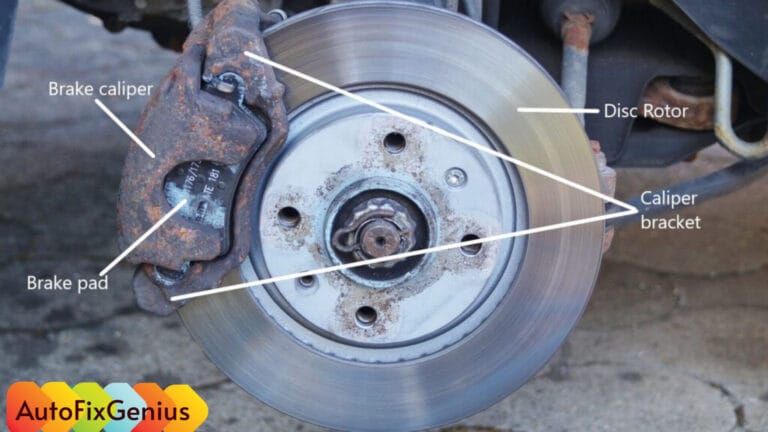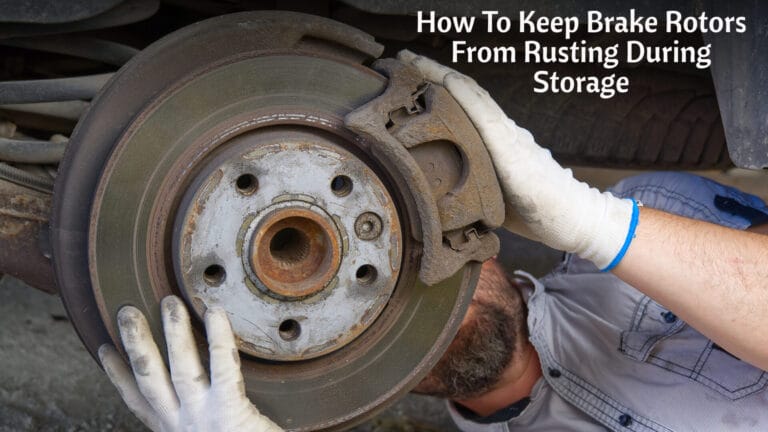What Causes Freeze Plugs To Blow Out? 4 Causes And Solutions
Freeze plugs keep coolant from leaking or seeping out. But blowing out freeze plugs compromises the vehicles’ engine safety. You should fix the issues immediately.
So, what causes freeze plugs to blow out?
Freeze plugs might be blown out after long use or due to improper maintenance. The exact reasons include rusted or worn-out freeze plugs, excessive pressure from frozen coolant, and improperly installed freeze plugs. You should be careful and do proper maintenance to avoid these issues.
However, what happens after your freeze plugs are blown out? And what should you do now? I have included the scenarios and actions to be taken comprehensively. Keep learning!
What Causes Freeze Plugs To Blow Out?
Freeze plugs can be blown out because of the following 4 reasons in most cases.
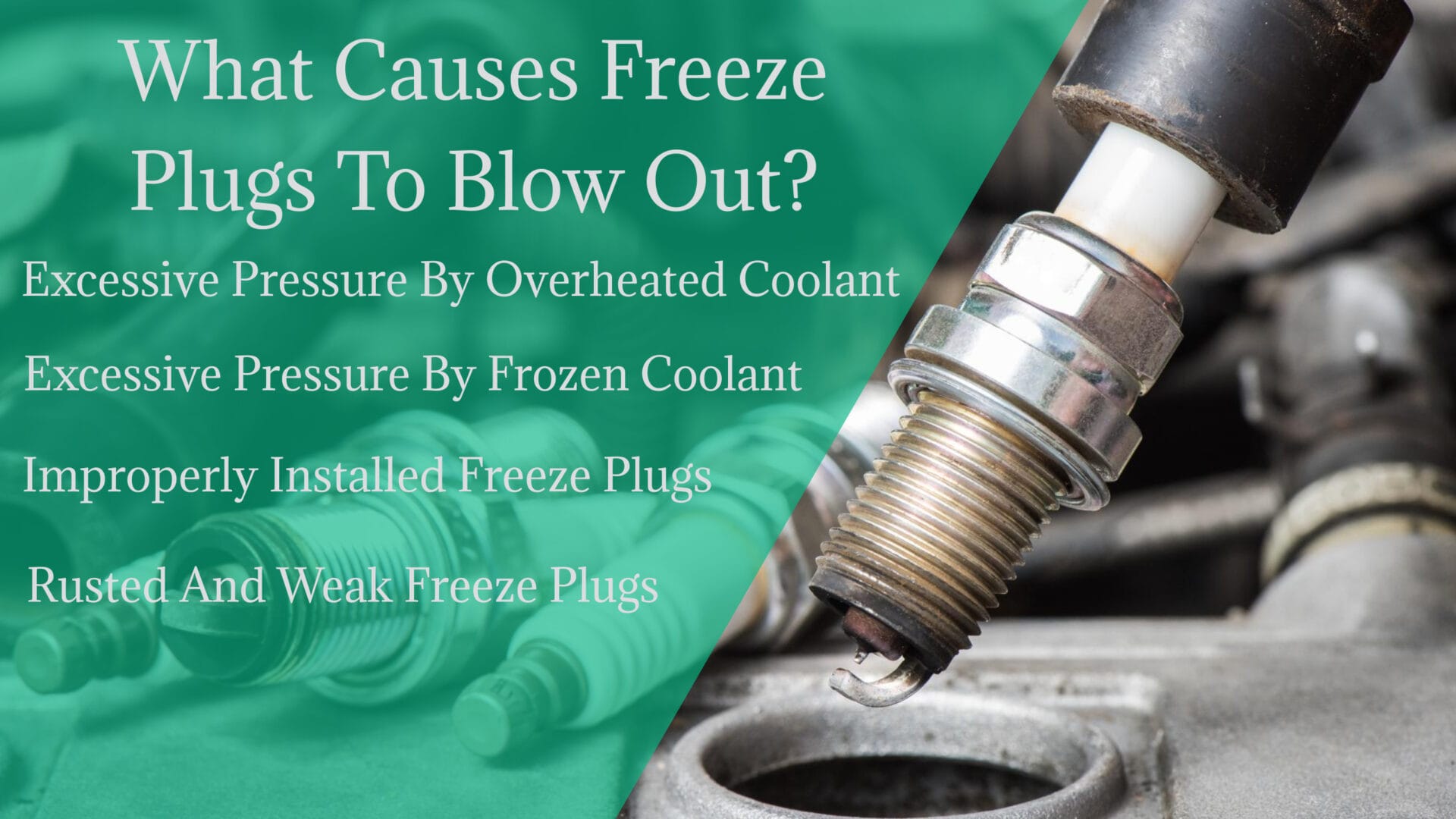
1. Excessive Pressure By Frozen Coolant
An engine freeze plug is not blown out intact often. However, it can happen if the pressure resulting from the freezing of coolant is very high.
The coolant freezes and expands during cold weather. The temperature at which antifreeze freezes depends on both antifreeze-to-water ratios and temperature levels.
If your coolant doesn’t contain enough antifreeze and the temperature is very low, the freezing happens fast.
For instance, a standard 50/50 coolant freezes at -35 degrees Fahrenheit. If you want to lower this temperature to -67 degrees Fahrenheit, you have to use a 70/30 antifreeze-to-water ratio.
Frozen fluid can exert tremendous pressure while expanding. So, if a low-antifreeze coolant is filled over the ‘Full’ mark, the freezing pressure will be very high.
Then, this high pressure can blow out freeze plugs and even crack the engine blocks.
Remedy
- Replace the blown-out freeze plugs with an automobile professional.
2. Rusted And Weak Freeze Plugs
Freeze plugs are usually made of steel or other suitable metals. These metals become rusted and corroded after a long time. So, freeze plugs become weak after long use.
Also, an inappropriate coolant-to-water ratio can cause freeze plugs to rust slowly from the inside.
However, too many worn-out or rusted freeze plugs are too weak. So, they can’t detain the pressure produced from frozen coolant, even if the pressure is not excessively high.
Remedy
- Replace worn-out or rusted freeze plugs with high-quality ones.
3. Improperly Installed (New) Freeze Plugs
I am not talking about the factory-installed freeze plugs. These are newly installed replacement freeze plugs by you or your mechanic.
Loosely installed freeze plugs can be blown out without having excessive pressure from the frozen coolant.
A replacement freeze plug that doesn’t have the exact same size and perfect fitting can cause this issue.
Remedy
- Find the right replacement freeze plugs for your engine. Don’t buy rubber expandable freeze plugs.
- Install the freeze plugs perfectly. Use a strong sealer for a strong fitting.
4. Excessive Pressure By Overheated Coolant
Hot coolant goes to the radiator to cool down before it runs through the engine passages again. If the radiator is blocked or can’t function properly, it can’t cool down the overheated coolant.
Then, the overheated coolant exerts excessive pressure on freeze plugs. However, it is rare and might happen with faulty or very old, worn-out freeze plugs.
Remedy
- If the radiator is blocked, clear the blockage.
- If the radiator is damaged, repair or replace it soon.
What Happens After Your Freeze Plugs Are Blown Out?
To get the answer, you have to understand why your engine has freeze plugs.
Freeze plugs, core plugs, or engine block expansion plugs are inevitable parts of your vehicle’s engine.They prevent coolant from leaking out by sealing the holes that are created during engine casting. These holes help to remove casting sand from inside the engine easily.
If freeze plugs are blown out, the coolant starts leaking fast through these large holes and is reduced to a dangerously low level. Then, the relevant consequences occur, including engine damage from overheating.
Symptoms of Blown Out Freeze Plug(s)
If you notice any one of the following symptoms, it may be due to a blown-out freeze plug in your vehicle engine:
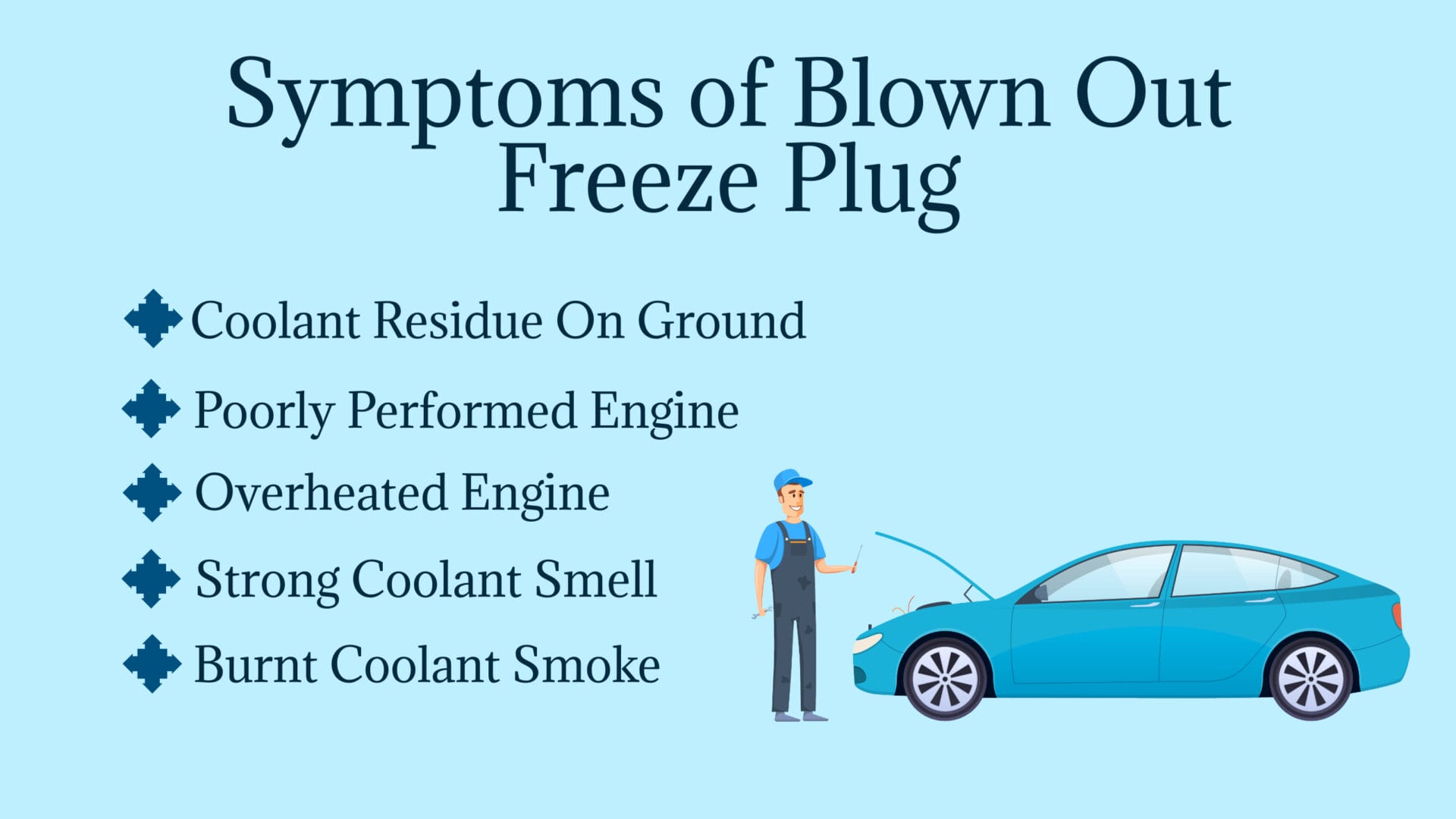
- Your engine will overheat due to a lack of coolant supply, as coolant leaks quickly through these large holes.
- The engine will perform poorly due to overheating.
- You might notice a strong smell of hot leaking coolant. It is sweet-smelled.
- White smoke of burnt coolant might come out of the bonnet.
- You will find coolant residue on the ground or surface under your vehicle.
How To Fix A Blown-Out Freeze Plug?
If freeze plugs are blown out, you have to install new ones with expert mechanics.
Different vehicles have different engine block designs. So, the freeze plug designs also vary from vehicle to vehicle.
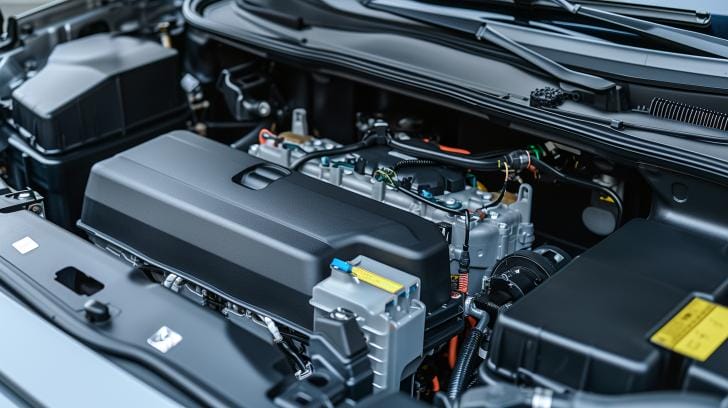
Here are the steps on how to fix a blown-out freeze plug in a workshop:
- Lift the whole vehicle to a suitable height. Or take the engine out only and hang it to an appropriate height.
- If the freeze plug is not blown out of its place completely, lever it out.
- Let the remaining coolant drain out.
- Remove the remaining coolant and debris inside the coolant chambers with a vacuum cleaner.
- Clean the surface on the side of the engine plug hole.
- Set the new freeze plug on a suitable socket.
- Apply the required amount of thread lock and sealer on the sealing surface of the new freeze plug.
- Place the freeze plug fitted on top of the socket into the freeze plug hole.
- Smack it with a hammer until it fits perfectly.
Watch the following video on how to fix a damaged freeze plug in an engine block.
How to Prevent Freeze Plugs From Blowing Out
- Maintain the right antifreeze-to-water ratios, depending on the temperature condition. 50/50 is a standard antifreeze-to-water ratio, and it performs well in all climates. The freezing point of this ideal coolant mixture is -35 degrees Fahrenheit.
- Maintain the optimum coolant level in the coolant reservoir.
- Always maintain an appropriate coolant-to-water ratio. An inappropriate coolant-to-water ratio can enhance the rusting process.
- Ensure that it is done properly after a mechanic finishes a replacement.
- Check the condition of the radiator often after certain periods.
Frequently Asked Questions
If you have blown out the freeze plugs in your vehicle’s engine, you might have many unanswered questions. Check out the following answers to some of the most frequently asked questions regarding the issue.
How Long Freeze Plugs Last?
Freeze plugs don’t last forever or for the life of a vehicle. But a freeze plug generally lasts for 100,000 miles. It will last this long if it is made of high-quality materials, and you don’t do anything that affects its longevity.
How Much Does It Cost To Buy A Freeze Plug?
The price depends on its quality, quantity, and vehicle model. A high-quality aftermarket freeze plug would cost $50 or more. Also, there are much cheaper options under $10.
How Much Does It Cost To Replace A Freeze Plug?
It varies. Freeze plugs are time-consuming, laborious, and costly to replace. The replacement process may require removing many parts and multiple hours of operation. So, a single freeze plug replacement might cost hundreds of dollars.
Can I Replace My Vehicle’s Freeze Plugs Myself?
The freeze plugs often occupy hard-to-reach areas of the engine block. So, replacing freeze plugs requires special facilities and tools. So, if you don’t have the required tools and the proper knowledge for the job, don’t try to do it yourself. Seek a professional service.
Can I Drive With Blown Out Freeze Plugs?
You can drive for some time with blown-out freeze plugs, as your engine doesn’t stop immediately for this issue. But it is not recommended to drive with blown-out freeze plugs. The catastrophic consequences could happen soon. So you should stop driving and address the issue fast.
Final Words
Replacements of bad or blown-out freeze plugs are expensive. Plus, the blowing out of freeze plugs could result in catastrophic damage.
So, I have gone through everything you need to know. Remember the causes and remedies to prevent your vehicle’s freeze plugs from blowing out.
If you already have this issue to solve, seek professional assistance. But it will be better for you to prevent the issue than to pay for expensive fixes.

